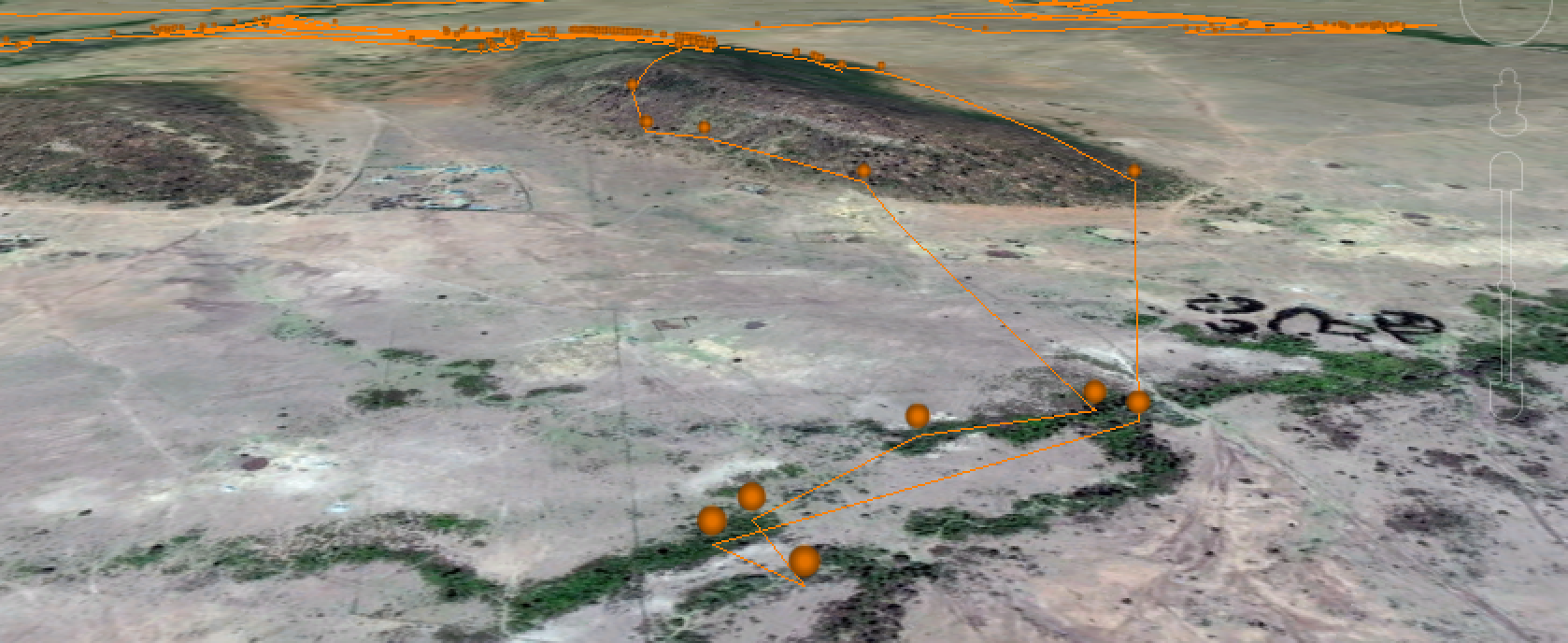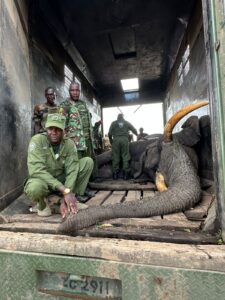Mara Elephant Project collared elephant Caroline is one of MEP’s longest continually tracked elephants in the Mara ecosystem. Originally collared in December 2011, Caroline has since been re-collared twice, February 2015 and May 2018, which has established a long-term record of her movements.

Caroline photographed with her family herd.
For the last few weeks, Caroline has been residing in an area with many human settlements. In response, MEP has setup a geo-fence, a virtual barrier that allows us to know when a collared elephant is within one kilometer of a community, to the area north of her location, which triggered an alert in early May. In conjunction with breaking the geo-fence and moving into areas of settlement, we noticed that Caroline was climbing a hill in the early morning, staying on the hill throughout the day, then coming down the hill to drink at night.
A snap shot of Caroline’s movements showing the geo-fence breaks.
This behavior according to MEP Director of Research and Conservation Dr. Jake Wall is indicative of elephants living in a stressful state in human-dominated landscapes. A paper published in 2017 by MEP’s collaborator Save the Elephants states that in high risk areas females reduced daytime activity by about 50 percent on average compared to low-danger zones, which makes Caroline’s movements and motivation all that more interesting to note.
“Although there is adequate vegetation on the hill where Caroline and her herd reside during the day, it costs an elephant 2,500 percent more energy to climb one vertical meter compared to traveling one meter horizontally and so frequent hill-climbing is not energetically profitable for an elephant.” Dr. Jake Wall

This shows the hill climbing Caroline was undertaking in May.
We do not know Caroline’s motivation for being in this area, but her movements have shifted out of her normal pattern of behavior and her use of the hill for daytime concealment and the night-time drinking indicate she was feeling under threat from the human factors in that area. MEP uses the real-time movement stream from collared elephants, like Caroline, to continually monitor their behavioral states, and can, at the first indication of a problem, send ranger patrols to physically check on the animal. We’ll be closely monitoring her and this new movement pattern.


